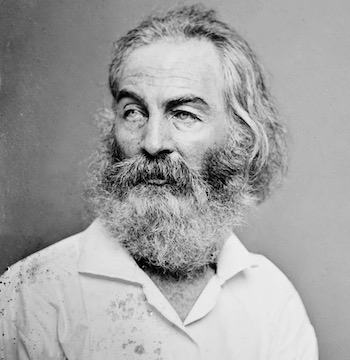Walt Whitman's Legacy and Influence on Modern Poetry

Walt Whitman is widely regarded as one of the most influential poets in American history. He was a pioneer of the free verse style of poetry and his work was a departure from the traditional forms of poetry that were popular in the 19th century. His legacy continues to influence modern poetry, and he remains one of the most widely read and studied poets in the world.
Born in 1819 in Long Island, New York, Walt Whitman grew up in a time of great change in America. The country was rapidly industrializing, and there was a growing sense of national identity as it moved towards becoming a world power. This sense of national identity was reflected in the poetry of the time, which often celebrated the American experience and celebrated American values. However, Whitman saw things differently. He believed that the American experience was not just about individual freedom and democracy, but also about a sense of unity and community.
This sense of unity and community is reflected in Whitman's famous work, Leaves of Grass. This collection of poems was first published in 1855 and it was unlike anything that had been seen before. Instead of following the traditional rhyming and metrical patterns of poetry, Whitman used free verse to create a new style of poetry that was more in tune with the rhythms of ordinary speech. This new style of poetry was a departure from the formal and rigid forms of poetry that were popular at the time, and it represented a major shift in the way poetry was written and understood.
One of the key themes of "Leaves of Grass" is the celebration of the individual and the power of the self. Whitman saw the individual as the key to unlocking the full potential of humanity, and he believed that everyone had a unique role to play in shaping the world. This idea of individualism is reflected in the way he wrote his poems, which were often personal and introspective, exploring his own experiences and emotions.
Another key theme of "Leaves of Grass" is the celebration of the natural world and the connection between the individual and the environment. Whitman saw nature as a source of beauty and inspiration, and he believed that the individual could connect with the natural world in a way that was both spiritual and transformative. This theme is reflected in many of his poems, which celebrate the beauty of the natural world and explore the relationship between the individual and the environment.
The influence of Walt Whitman on modern poetry cannot be overstated. He broke with traditional forms of poetry and created a new style of poetry that was more in tune with the rhythms of ordinary speech. This new style of poetry was a departure from the formal and rigid forms of poetry that were popular at the time, and it represented a major shift in the way poetry was written and understood.
In the decades following the publication of Leaves of Grass, many poets were influenced by Whitman's work and followed in his footsteps, using free verse to create new and innovative forms of poetry. This new style of poetry was particularly popular in the United States during the 20th century, and it became an important part of the American literary canon.
Whitman's legacy continues to influence modern poetry, and he remains one of the most widely read and studied poets in the world. His celebration of the individual and the power of the self, as well as his celebration of the natural world and the connection between the individual and the environment, continue to inspire new generations of poets.
Walt Whitman was a pioneering poet who broke with traditional forms of poetry and created a new style of poetry that was more in tune with the rhythms of ordinary speech. His work continues to influence modern poetry, and he remains one of the most widely read and studied poets in the world.
